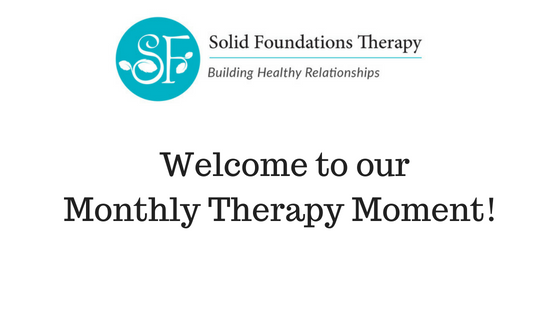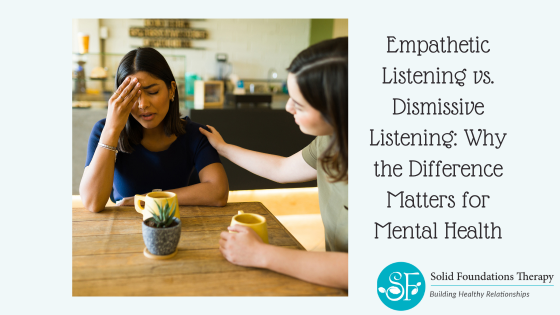The Spiritual Side of Wellness! (video)
Wellness isn’t just about the body — it’s about the spirit too. When your faith and heart align, healing begins within.
Improving Self-Esteem: A Therapist’s Perspective on Perfectionism, People Pleasing, Positive Mindset, and Imposter Syndrome
When clients come into my office, one of the most common themes I hear is: “I just don’t feel good enough.”
It doesn’t matter if they’re high achievers, parents, students, or high-level executives; the underlying struggle is the same. Low self-esteem doesn’t discriminate, and it often shows up in very subtle ways.
Navigating Cultural Differences in Relationships with Confidence!
Relationships are beautiful, but they can also bring unique challenges when you and your partner come from different cultural backgrounds. Embracing those differences with curiosity and respect can strengthen your bond and open new doors of understanding.
Empathetic Listening vs. Dismissive Listening: Why the Difference Matters for Mental Health
When someone we care about is hurting, our instinct is often to do something — offer solutions, cheer them up, or try to help them “move past” what’s wrong. While these intentions usually come from a place of love, they can sometimes backfire. The way we listen can either deepen connection and emotional safety, or it can unintentionally make someone feel unheard and alone.
Two common styles of responding — empathetic listening and dismissive listening
Feeling stretched thin between work and life? You’re not alone — and you don’t have to choose one over the other. In this video, we’re sharing practical, real-life tips to help you create a healthier balance without burning out.
Navigating Neurodivergence in Romantic Relationships: Embracing Differences with Compassion
In my work as a couples therapist, I’ve had the privilege of walking alongside a variety of partners as they navigate the intricacies of love, commitment, and communication. For couples where neurodivergence plays a role—whether through ADHD, autism, or other neurological variations—the journey often can include unique challenges, but also incredible strengths. With patience, openness, and understanding, couples can build deeply fulfilling relationships that honor both individuality and connection.
Understanding Neurodivergence vs. Personality Differences
The Wise Mind: How to Balance Emotion and Logic in Tough Moments. (video)
Ever feel torn between your emotions and logic in tough situations? That’s where The Wise Mind comes in. It’s the balance between heart and head — helping you make decisions that feel right and make sense.
Navigating Gender Identity in Relationships: A Guide to Understanding and Acceptance.
Whether you’re exploring your own gender identity or your partner is, navigating that journey together can feel overwhelming — like trying to solve a Rubik’s cube... blindfolded. But with understanding, communication, and a healthy dose of compassion, it is possible to move forward with love and clarity.
Sitting With Your Feelings: A Simple Practice for Emotional Clarity (video)
even stronger?
Learning to sit with your emotions—instead of avoiding, numbing, or overthinking them—can be one of the most powerful steps toward healing and self-awareness.







